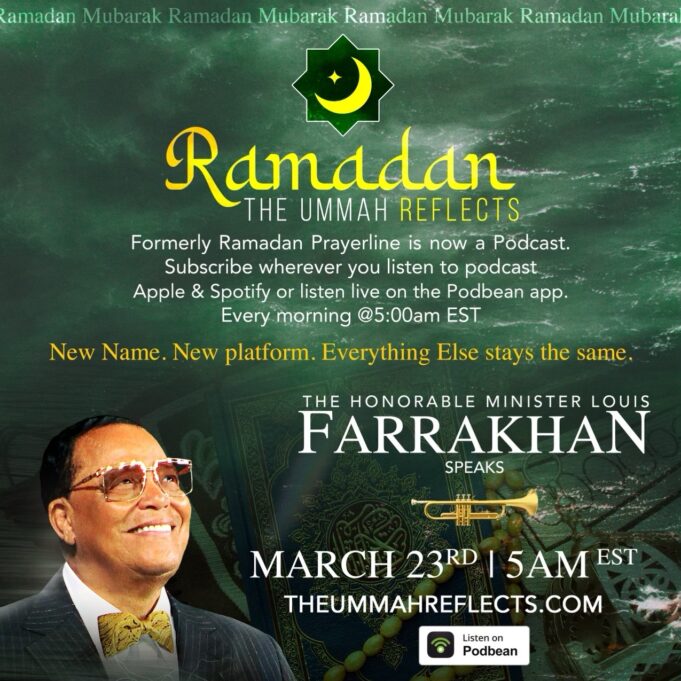Close to two billion Muslims worldwide are looking forward to celebrating Ramadan, in as many ways as they did before the pandemic. Ramadan is the ninth month of the lunar calendar and Muslims fast from food and drink during the daylight hours for 30 days this month. Ramadan is the month that Prophet Muhammad, peace is upon him, was visited by the angel Jibril who revealed to the new prophet words from Allah (God) that would later be known as the Qur’an.
“The unifying force of the Holy Qur’an commemorated in the great fast of the Month of Ramadan centers the human experience in the transcendent and illuminating power of its Message in its manifest demonstration in the universal advancement of humanity beginning with self,” explained Nation of Islam Student National Imam Sultan Rahman Muhammad.
“First spiritually, the Holy Month of Ramadan is a most important time for the righteous of all diverse backgrounds, schools of thought, and cultures because it is the month in which the Holy Qur’an was revealed. Therefore, the month roots the Believer in the Divine Word of Allah (God) as a nourishment to the mind, heart, and spirit.
We collectively strive every Ramadan each year to elevate ourselves through its universal moral injunctions and spiritual guidance,” said Student Imam Sultan Muhammad, a great-grandson of the Most Honorable Elijah Muhammad.
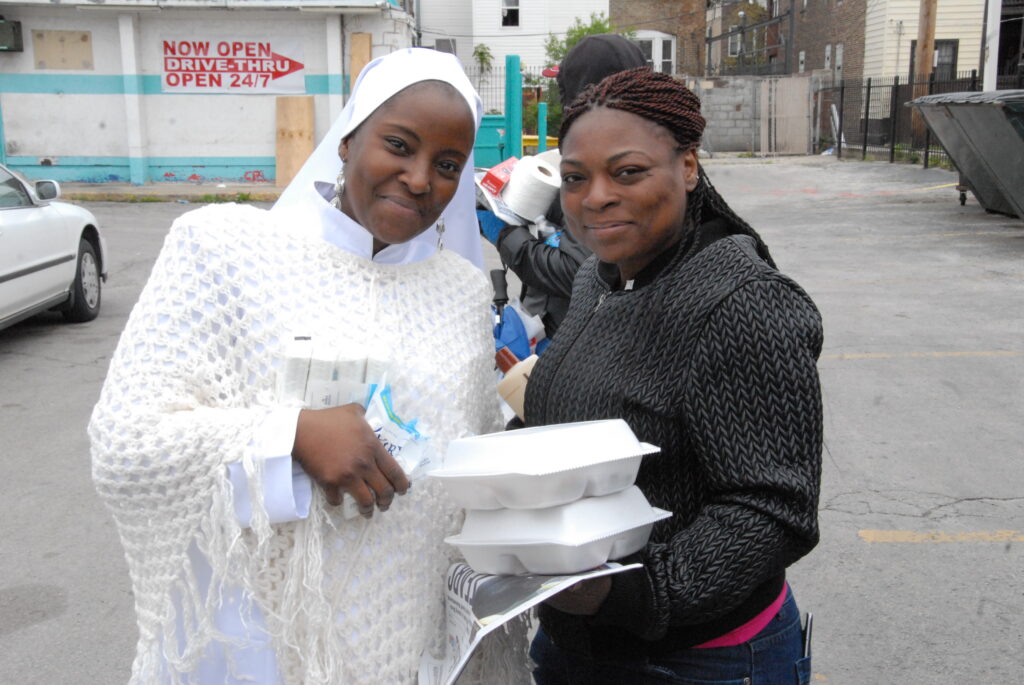
“Secondly, we are rooted in our shared struggle to overcome the carnal realities of self that are represented in our abstinence from wrongdoing, food, drink, and intimate relations during the daylight with our husbands and wives. As we collectively abstain from these natural universal hungers,
The shared reality of our struggle for balance to overcome excess by cultivating righteous virtues, we deepen our relationship with Allah (God) and one another in all aspects of life to free ourselves from the tyranny of the evils of ‘self’ and others for the advancement of unlimited progress, peace, joy and contentment of mind to establish a new reality through self-purification,” he added.
When the pandemic hit in 2020, Ramadan looked very different with Muslims sheltering in place and forgoing their usual festive gatherings, instead finding ways to worship at home with family or having “virtual” festivities. Last year communal gatherings began to return, and this year Ramadan should look like it did pre-COVID with in-person gatherings.
“This year highlights how fractured and ill a country we are,” said Dr. Aminah Al Deen, Chair Emeritus of DePaul’s Islamic Studies Department. “The pandemic seemed to have brought out the best and worst in people. For some who were fairly balanced in their lives, it swung them to the negative side. People stopped speaking to each other, they forgot everyday social etiquette.
People went deep inside themselves, not for awareness, awakening, or anything, but to shield themselves. So, Ramadan is a golden opportunity for those that are fasting,” said Dr. Al Deen. “Some people have to force themselves to be pleasant, to get work done, to communicate, and to cut through all of those negative feelings and remember the blessing that they’re on this side of the dirt.”
Ramadan starts by approximately 11 days earlier each year because the lunar calendar follows the moon’s phases. Muslims believe that the Qur’an was revealed to Prophet Muhammad, peace be upon him, in A.D. 610. Revelation happened on Laylat Al-Qadar, or the “Night of Power,” during the last 10 days of Ramadan.
Muslims commemorate God’s revelation this month by praying and reciting the Qur’an. In addition, they strive to be better Muslims by refraining from gossip, lying, fighting or arguing. Muslims also increase their acts of service in the community by striving to help people in need.
“Muslims all over the planet will answer the command of a law cited in the Holy Qur’an Chapter two, verse 185 where Allah commands us to fast within the ninth month of the Islamic calendar called Ramadan. But certainly, this is the month in which the Qur’an was revealed. We know this is significant because fasting is a pillar of our faith for every Muslim,” Nation of Islam Student Imam Abdul Salaam Muhammad of Baltimore’s Mosque No. 6, told The Final Call.
“Allah calls us together as an entire ummah (community) that we may recalibrate and have a cleansing of our soul and gain nearness to Him as His mercy is magnified, His forgiveness is magnified. The rewards and the blessings from Allah are increased and magnified also. This is the month of service. As Muslims are encouraged to do neighborly deeds or acts of kindness.
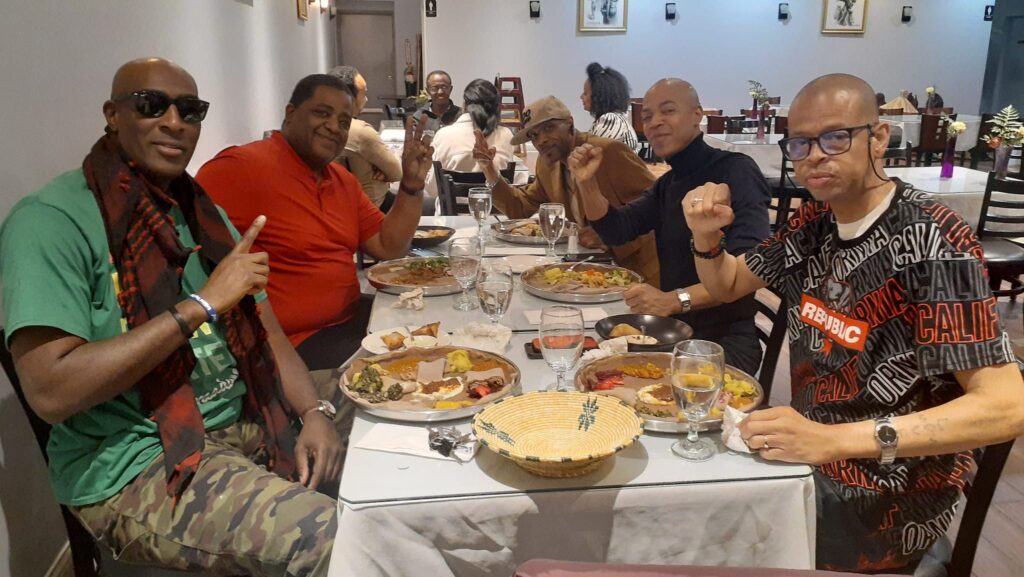
We must have compassion on those that are most needy this month, those that are Muslims and those that are not,” he added. “Allah says: ‘fasting is mine. It is I who gives reward for it and whoever gives up sexual passion, his food and his drink, for my sake, fasting is like a shield. He who fast has two joys. Joy when he breaks his fast and joy when he meets his Lord,’” said Imam Salaam Muhammad, who also serves as the student minister of the Nation of Islam’s Baltimore mosque.
Fasting from sunup to sundown is obligatory for Muslims, except for the sick, pregnant women, nursing mothers, travelers, elderly, or menstruating women. If a day of fasting is missed, it can be made up throughout the rest of the year, either all at once or one day here and there. The fast is not meant to be a hardship. Some Muslims eat a pre-dawn meal called suhoor, usually before the first prayer of the day, fajr. The evening meal, iftar, is eaten after the sunset prayer, Maghrib, is done.
The fast is often broken with dates and a glass of water, just as Prophet Muhammad, peace and blessings, did. “For many, Ramadan is a time of great uncertainty in the Muslim world, and great uncertainty in the world,” Minister Abdul Akbar Muhammad, International Representative of the Nation of Islam told The Final Call. He called attention to the suffering of so many people such as the earthquake survivors in Turkey and Syria. “For Muslims, Ramadan is a time of peace.
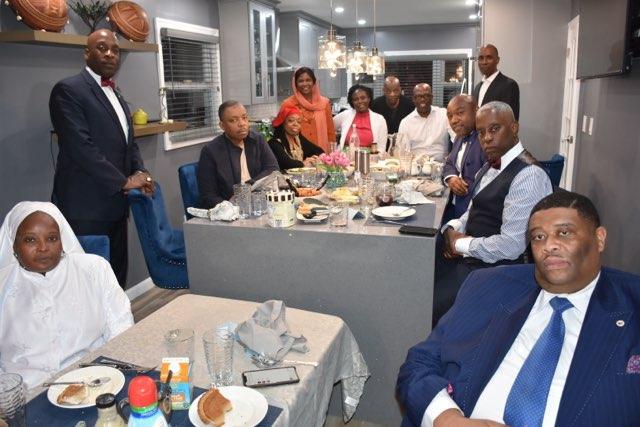
Muslims are strengthening their resolve to make the fast from sun up to sundown. This is what we know Ramadan to be about. We ask our Lord to bless our families and our loved ones, and those who are sick and burdened by anything. We ask Allah to bless us to be charitable during Ramadan, to give to those who don’t have, and to comfort the sick, those that are shut in and to stand by those who lost family members during the earthquake,” said Minister Akbar Muhammad.
A devastating earthquake hit Turkey and Syria on February 6. It killed over 50,000 people, including 6,000 in Syria, rendered millions homeless across almost a dozen cities and caused damage in Turkey estimated at $34 billion, according to the World Bank.
“The parable of the believers in their affection, mercy, and compassion for each other is that of a body. When any limb aches, the whole body reacts with sleeplessness and fever.” We are reminded in this statement of Prophet Muhammad, peace be upon him, as the Honorable Elijah Muhammad writes in Message to the Blackman, ‘We are not an organization; we are a world.’
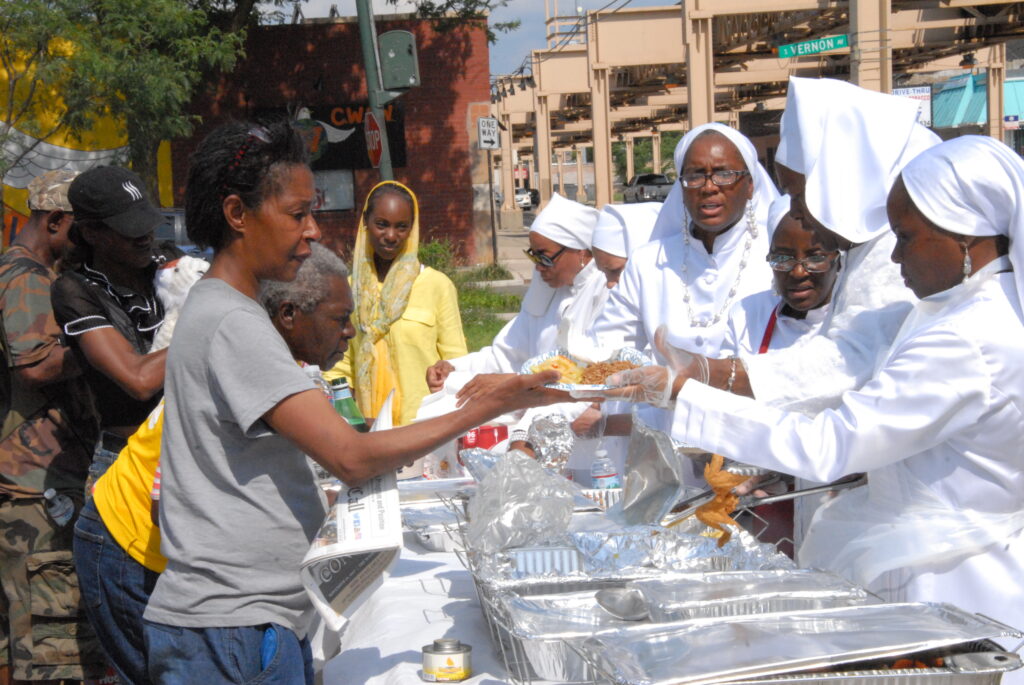
So when we hear of the suffering or pain in one part of the body it must alert us to what we suffer in every limb. The Muslim world is found around the planet. We must ask ourselves, ‘What is a “Muslim” issue?’ When calamity strikes dominantly Muslim nations are we acutely aware but become numb to the protracted oppressions facing Muslims in China or Black and Muslim communities here in America and the West?,” said Student Imam Sultan Muhammad.
“One of the beautiful things about the Month of Ramadan is that it thrusts the Muslim mind toward a global perspective of the Muslim body, yet, also the perspective of human suffering emphasized in the obligatory charity of every able Muslim at the end of Ramadan that is distributed to those nearest in need within our local communities called sadaqat-ul-fitr, regardless of faith or creed, which we are obliged never to neglect, particularly based on social political hierarchies wrapped in overtones of racism or nationalism that would marginalize any part of the bodies’ pain,” he added.
According to the Institute for Social Policy and Understanding (ISPU), “Black Muslims represent one-third of the American Muslim community, lead in rooting and growing Islam in America, and have borne the brunt of racial injustice and racism throughout our country’s history. “As a group, they experience a range of challenges due to anti-Black racism and Islamophobia.
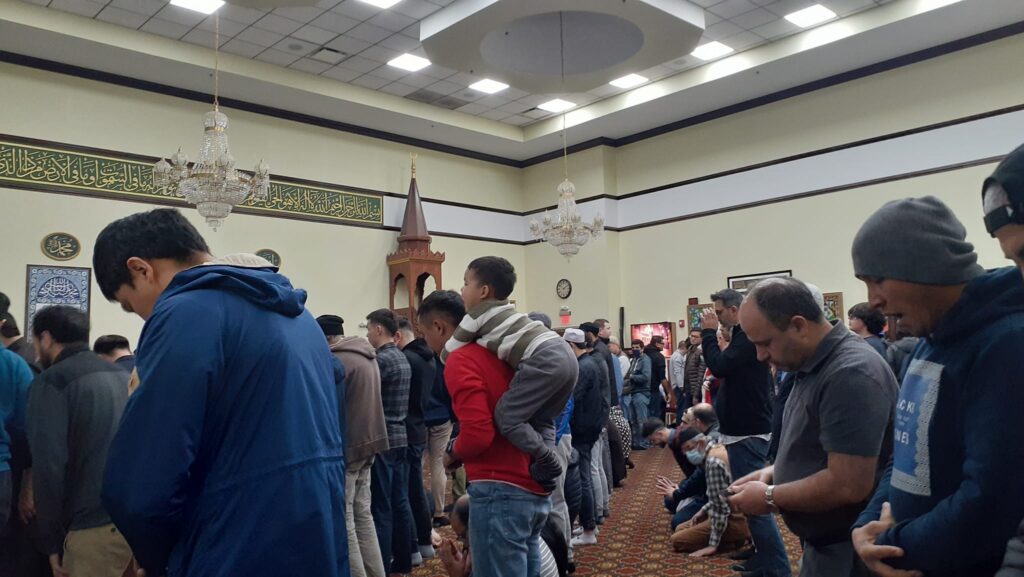
Muslims who identify as Black experience the same systemic racism that all Black Americans face in their day-to-day lives, in addition to the religious discrimination faced by many Americans who are Muslim.” These systemic and oppressive practices dehumanize and devalue Muslim life in America in every sphere among its population, particularly if you are Black and Muslim.
During Ramadan for nearly two decades has been a morning gathering for Muslims worldwide. “Ramadan: The Ummah Reflects,” previously known as the “Ramadan PrayerLine,” allowed Muslims to join a 5:00 a.m. Eastern Time conference call to be inspired by various speakers. The speakers represent communities that empower listeners to begin their fast with purpose and intentions. This year the morning call has moved to a podcast, “Ramadan: The Ummah Reflects.”
“As opposed to conference calling, which is what we’ve used since our beginning, podcasting eliminates the need to connect multiple phone lines. Additionally, podcasting dramatically decreases the potential for glitches like dropped lines, low volume and (dial-in) access challenges,” Brother Abdul Shahid Muhammad told The Final Call. Brother Shahid Muhammad serves as the technical director for, “Ramadan: The Ummah Reflects.”
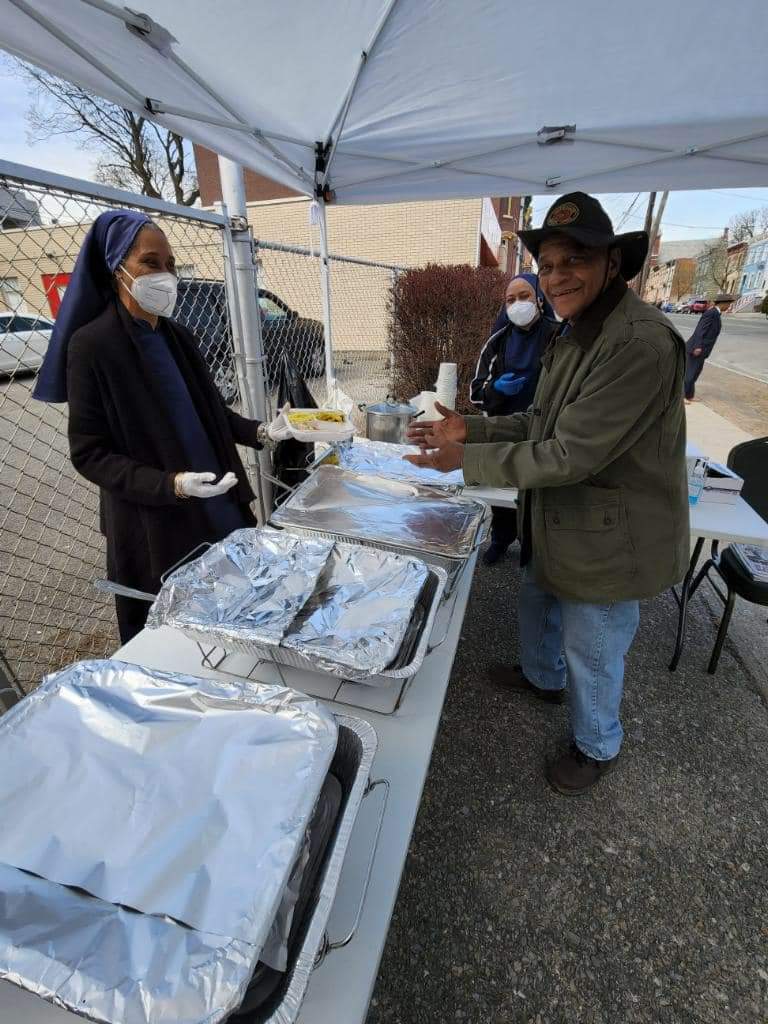
The podcast can be found everywhere podcasts are found. For those Ramadan “warriors” who want to listen live at 5:00 a.m. Eastern Time they can download the app Podbean to their smartphone and search for Ramadan: The Ummah Reflects. “As a first-time user of the “Podbean” app, simply launch the app, press ‘skip’ at the bottom of the screen, search Ramadan: The Ummah Reflects, click on the green icon, select the ‘live’ cast and listen,” explained Brother Shahid Muhammad. Every morning of Ramadan, after listening live a new episode will be available for download and be ready for listeners.
Daily speakers include the Honorable Minister Louis Farrakhan, Imam Siraj Wahhaj, Imam Zaid Shakir, Dr. Aminah Al Deen, Dr. Safiyya Shabazz and Sister Ustadha Ieasha Prime. “This Ramadan will be very special,” Student Minister Mutthakir Muhammad told The Final Call. “Once again we have the Honorable Minister Louis Farrakhan as our opening speaker. This is the one place where you can hear the unity of Black Muslim communities during Ramadan,” he said.
Minister Farrakhan has given extensive guidance about Ramadan over the years. Imam Abdul Salaam Muhammad recalled the Minister’s words: “The voice of Satan comes up to slow our pace of success for Ramadan. The Minister says, we must resist the voice of Satan that will whisper into our minds, ‘Oh man, this is hard. I can’t do it.’ The Minister said, ‘Stop it, right now and then say:
I can do it! I must do it! I will do it!’At the end of 30 days, we will see how much of a better Muslim we are.’” Ramadan ends with Eid al-Fitr celebrations, the “festival of breaking the fast.” For many Muslims, it starts with communal prayers offered after sunrise and before noon. Some communities offer days of festivities, with prayers, lavish meals, and gift exchanges while visiting family and friends. Final Call staff contributed to this report.












